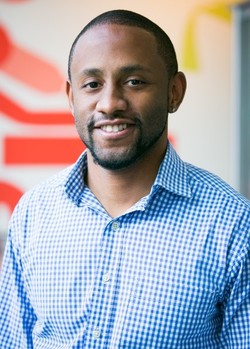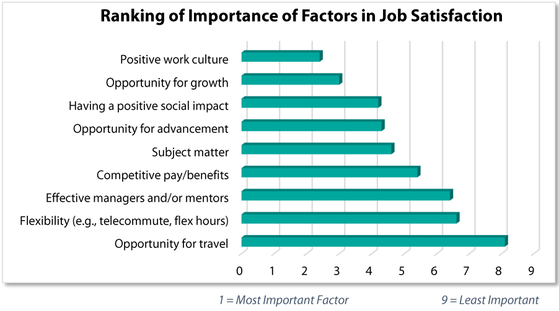
These trends support a growing national service movement. There are a host of organizations, many under the AmeriCorps umbrella, with missions dedicated to public service in some form. The National Civilian Community Corps does physical service projects; AmeriCorps VISTA is dedicated to fighting poverty in America.
For this month’s interview (my last with YEP!), I spoke with Brian Alexander, who has spent most of the past decade working with AmeriCorps-funded public service organizations.
After graduating from Miami University in Ohio, Brian came to D.C. to serve with Teach For America, where he taught middle and high school social studies in Prince George’s County. He continued his work in education as a program manager, then program director, then school partnerships director with City Year D.C. And Brian’s service roots go deeper: he’s a lifelong Eagle Scout and former student body president.
He and I spoke about TFA critics, being less judgmental, and his news anchor alter ego. Read more below.
I worked for City Year for a few years, but I don't think everyone is familiar with it. Can you share your elevator pitch, plus a little more about your role?
I serve as the school partnerships director for City Year in Washington, D.C. We are a national education-focused non-profit working in 26 cities as well as the United Kingdom and South Africa. We partner with urban school districts to place diverse teams of AmeriCorps members in schools to provide additional support around attendance, behavior, math and English to students who are at risk of dropping out of school. City Year teams work collaboratively with teachers and school staff to provide one-on-one and small group tutoring before, during, and after school. City Year corps members also run academic and enrichment programs after school, provide lessons on socio-emotional learning, coach students on their attendance, partner with parents, and contribute to a positive school climate through various whole school events and initiatives.
In my role, I work directly with D.C. Public Schools to monitor the progress of our school partnerships and the effectiveness of our program and identify schools that wish to partner with City Year. I also support a team of staff members who lead the professional development and coaching of our AmeriCorps members, ensure we are compliant with AmeriCorps regulations, and cultivate our practice with evaluation and data.
There's been some pushback against TFA, particularly for its short-term placement of teachers. City Year also uses a short-term placement model. Where do you come down on this issue?
As a City Year employee and a Teach For America alumnus, I know that both of these organizations are very different. There are some similarities, but I’m struggling with the comparison in the premise of this question because I think it’s fundamentally a comparison between apples and oranges.
City Year relies on young adults to serve as “near-peers” to students who can relate to students in a unique way. You don’t stay young enough to be a near-peer forever; you can’t even qualify for AmeriCorps once you are over 24 years old. We also bring in new AmeriCorps members each year in order to advance the national service movement. There’s also a long-term aspect to our model. We try to serve with the same connecting elementary, middle, and high schools that have the highest rates of students who drop out of school before graduation. We aim to reach a majority of students in the markets we serve so they will have the additional support of a City Year AmeriCorps member from kindergarten through 10th grade. I think these are admirable aspects of City Year’s approach and model that help us be a source of continuity for students. One of City Year’s goals is to be a stable presence in a student’s life, even if it isn’t the same corps member every year.
As for Teach For America, I believe that as long as school and district leaders are satisfied with the performance and instruction of TFA corps members and their efforts in helping districts meet their human capital needs, then I support the organization’s expectation of a two-year commitment. I believe the organization understands the stakes are high. I support this belief with how incredibly high the expectations were of me during the extremely rigorous summer institute during which TFA staff took no excuses from me or my fellow corps members. These high expectations continued throughout my two years during the on-going professional development TFA provided.
I believe part of the reality that many Teach For America critics fail to acknowledge is the extraordinary challenge that school districts face in filling teaching positions in their most struggling schools. This is a reason why schools and districts rely heavily on a number of alternative teaching certification programs and even school leadership certification programs (not just TFA) in order to meet their human capital needs. Much of the criticism is coming from current members or alumni who are expressing shortcomings with their experience or from those whose job it is to write opinions and have them published. I am sure there are some school and district leaders who have expressed concerns that some TFA recruits are prepared well while others are not. I know they have given TFA feedback and the organization should work to address these concerns expeditiously. In spite of these concerns, you don’t hear scores of superintendents and principals publicly slandering the organization, throwing it under the bus and calling for its demise. If Teach For America vanished tomorrow, then I would love to hear TFA critics outline thoughtful and constructive proposals for how school districts that rely on them most will be able to meet their human capital needs.
I imagine much of your current role involves building relationships and managing interactions - and I know your previous roles as program director and program manager did, too. What have you learned about people along the way?
I think the most important lesson I have learned in working with so many young adults over the past five years is being able to fully learn about and appreciate the diversity of each individual. I am not just referring to race, gender, sexual orientation, or religion, but every aspect of diversity including personalities, life experiences, socioeconomic background, education level and more. Taking the time and having the space to fully learn about others has allowed me to have my own subconscious (and conscious) biases confronted and debunked. This has all helped me become a far less judgmental person and see the full humanity in others.
You and I spoke about the importance of community engagement. Talk to me about that. To what end? If you could build your ideal community engagement outcome, what would it be?
If I could create my ideal community engagement outcome it would involve more people engaging in volunteerism and national service. This may sound like a scripted or generic answer, but it’s my most honest one. Having more Americans involved in national civilian service and volunteerism would help people develop more diverse personal and professional networks. It would help us have more compassion and understanding for one another so the events that took place in Ferguson or Staten Island last year don’t become so divisive and contentious. I think it’s so hard for many Americans to see eye to eye and have compassion for others who are different than them because so many of them don’t have close relationships with people from different backgrounds. Their perception of others is based solely on stories, hearsay, and what’s portrayed in the media and entertainment. National service and volunteerism at the local level could have an immeasurable and positive impact on our civil society. It would bring us closer together as citizens. I believe it could make our nation so much stronger.
If you could effortlessly switch careers – just woke up tomorrow really good and already established in another role, any role – what would it be?
I would love to be a news anchor. Especially one that does the evening news like Peter Jennings or Tom Brokaw, which is weird because I’m very introverted and hate being on camera and being the center of attention. I think my attraction to it is the service, the obligation to keeping the public truthfully and fairly informed. But knowing what I know now about media conglomerates, I likely wouldn’t be happy in this role. I suspect the executives to whom I report (and the ones to whom they report) would have more say than I would be comfortable with in terms of my reporting.
What's your favorite PITW?
#87 Celebrate Achievement: No matter how small. Whenever possible, name the names of the people who have achieved.
Ashley Mitchel is an analyst with Bellwether Education Partners, and her Q&As with local education leaders are a regular Recess feature. Reach her via email or Twitter.



 RSS Feed
RSS Feed